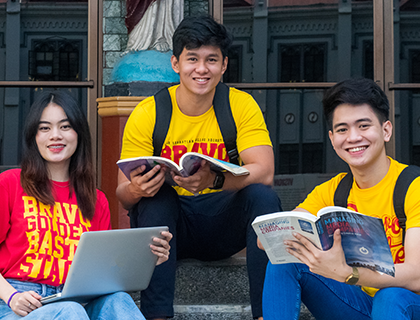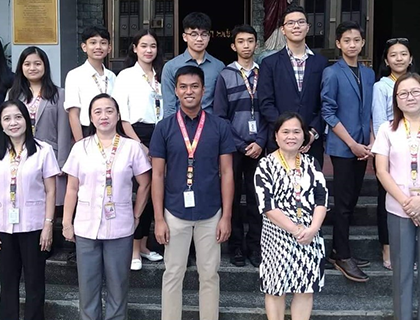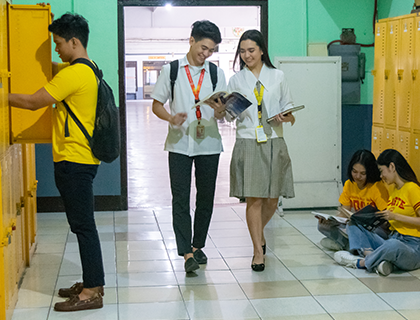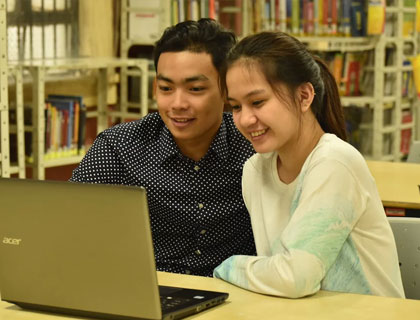by Kyle James Solar

In a symposium on the Bangsamoro Basic Law — known by its acronym, BBL — held at the Bulwagang Diego Cera of San Sebastian College – Recoletos Manila last August 19, Sen. Ferdinand “Bongbong” R. Marcos, Jr. discussed his move of proposing a substitute for the BBL, arguing against BBL’s flaws and unconstitutionality. Students, professors and political enthusiasts from the Lyceum of the Philippines University – Manila, Arellano University, Manuel L. Quezon University, University of Santo Tomas, Polytechnic University of the Philippines, Centro Escolar University, and the San Sebastian College-Recoletos Manila attended the event.
Atty. Ernesto Salao, Director of the Student Affairs Office, welcomed the participants and the speaker, urging everybody to listen and be exposed to a morning of learning and experience. He also reiterated the fact that schools such as San Sebastian advocate and facilitate change.
Introduced by Paul Francisco, a professor from the area of Political Science of the SSC-R Manila College of Arts and Sciences, Marcos strategically began his talk by giving a brief history that led to the creation of the Bangsamoro Basic Law. He then discussed the difference between the concept of autonomy and independence as well as the processes involved for the BBL to be passed.
According to the Article 1, Section 3 of the BBL draft, the purpose of the Basic Law is to establish the new Bangsamoro political entity and provide for its basic structure of government, in recognition of the aspirations of the Bangsamoro people. Passing said law would mean making the Bangsamoro Region a part of a sovereign state, the Senator cleared. According to him, this should not be allowed if we want to keep the Republic; it is the Government’s responsibility to make sure that the BBL will not lead to secession. He stressed, though, that the law has a low chance of being passed because of the fact that it is unconstitutional, and only one party — the Moro Islamic Liberation Front (MILF) — was involved in its consultation. He continued by saying, “BBL will not bring peace but war,” contrary to the popular notion that the BBL is the answer to the so-called Mindanao conflict.
To address these issues, a substitute bill entitled “The Basic Law of the Bangsamoro Autonomous Region (BLBAR)” is proposed. As the primary author of BLBAR, Marcos argued that in comparison to BBL, BLBAR contains proposals not included in the original draft; it is constitutional; and it is inclusive. Prior to the creation of the substitute bill, all groups and representatives from the Youth, the Local Government Units, the Moro national Liberation Front (MNLF), the Moro Islamic Liberation Front (MILF), the Indigenous Peoples, Christians, the Women’s Sector, Retired Military and the Business Sector, and other stakeholders were consulted so that all their concerns may be evaluated and may be considered for inclusion in the new bill. He continued by discussing the process involved in making a bill into a law, such as the BLBAR. Considering this tedious process, he asked for everyone’s patience and support.
As a final note, inspired by St. Agustine’s Caritas et Scientia, Marcos urged everyone to get involved and become part of making this chapter in history. An open forum ensued after the talk.

The San Sebastian Political Science Society, under the guidance of Prof. Francisco Riodique, in collaboration with the College of Arts and Sciences Department of Political Science and the Supreme Student Government organized this symposium.






